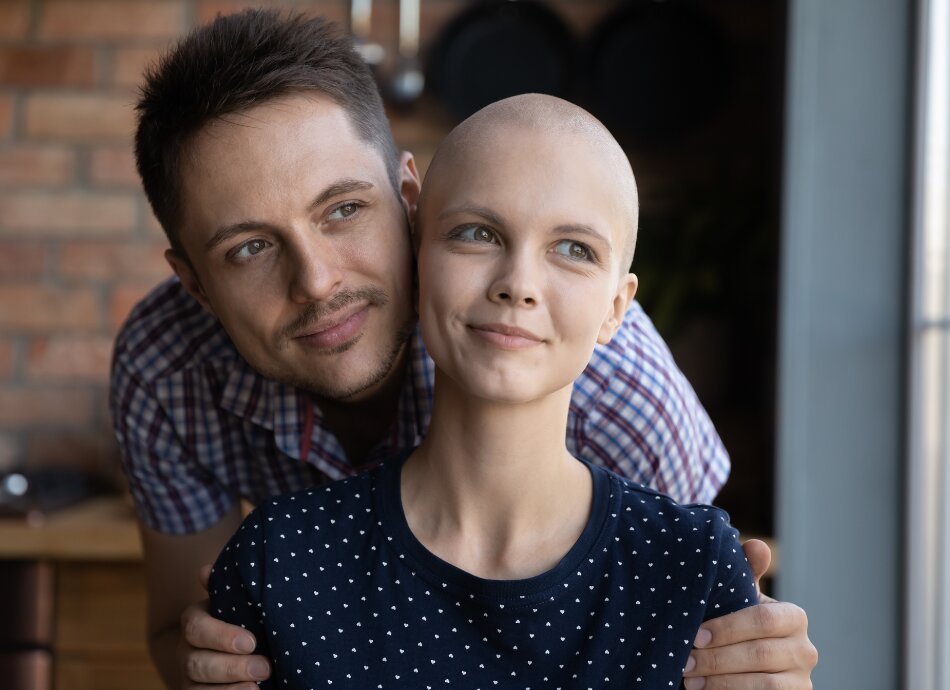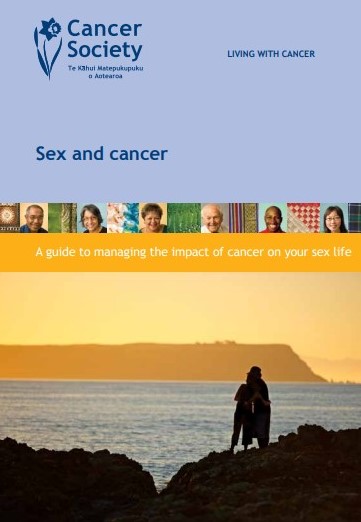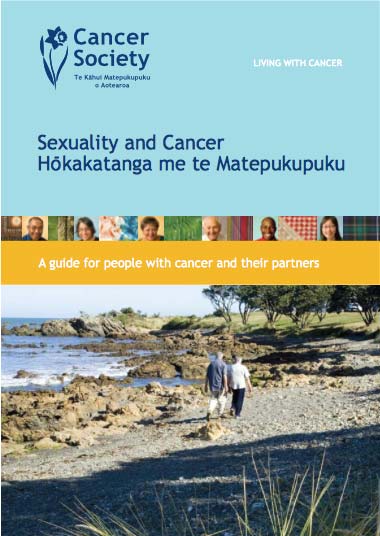Sexuality means different things to different people. It’s about who you are, how you see yourself, and how you connect with others. It's much more than sexual intercourse.
Low or no data? Visit Zero Data then search for 'Healthify'. Click on our logo to return to our site and browse for free.
Sex and cancer
Key points about sex and cancer
- Cancer has the potential to affect your sense of self and relationships in a number of ways.
- The type of cancer and the treatments you have can cause issues with physical intimacy, emotional wellbeing, body image and fatigue.
- Changes in the way you enjoy and have sex may be needed.

The type of cancer you have, or your treatments, can cause issues including:
- lowered sexual desire
- physical discomfort or a change in sexual functioning
- body image issues
- extreme fatigue.
It's difficult to predict accurately how cancer and its treatment will affect you, but for most people there are changes that require them to adapt and develop new ways of giving and receiving sexual pleasure.
Some ways that cancer or its treatments can affect your sexuality are:
- the physical ability to give and receive sexual pleasure
- thoughts and body image (how you see yourself)
- feelings like fear, sadness, anger and joy
- roles and relationships.
The links between these are important for all sexual relationships. If there's a problem in one, it may have an impact on another. When someone becomes ill, any or all of these areas can be affected and the amount they are affected may also change throughout your cancer journey. Throughout this time, communicating with trusted people will help to understand the problems your face and find solutions. Trusted people may include your partner, friends, nurse, doctor or a therapist.
If this has happened to you or your partner, then it might be helpful to understand that some changes will only be temporary. Some physical changes associated with cancer or its treatments may be able to addressed by your doctor. Examples of this may include; vaginal dryness, erectile dysfunction, chronic pain, fertility issues and fatigue. Physical changes may also impact on your body image and gender identity. If you're experiencing emotional changes affecting your relationship dynamic, speaking to a therapist individually or as a couple may help.
Even if your experiences are likely to be long-lasting, or permanent, it's possible to communicate, adapt and learn new things to improve your sexuality and sexual relationships.
Emotions and cancer English/te reo Māori(external link) Cancer Society, NZ, 2020
How we can help(external link) Cancer Society, NZ
More cancer support groups
Information sheet on cancer and sexuality(external link) Cancer Society, NZ
How cancer can affect your sexuality and sex life(external link) Cancer Research UK
Apps
Self-management and healthy living apps
Resources
Sexuality & cancer – a guide for people with cancer & their partners (external link)Cancer Society, NZ, 2007 English/te reo Māori(external link)
Sex and cancer: a guide to managing the impact of cancer on your sex life Cancer Society, NZ, 2015(external link) English/te reo Māori(external link)
Brochures

Cancer Society, NZ, 2015
English/te reo Māori

Cancer Society, NZ, 2007
Credits: Healthify editorial team. Healthify is brought to you by Health Navigator Charitable Trust. Original material provided by the Cancer Society of New Zealand
Reviewed by: Dr Bryony Harrison, MBChB, BMedSci(Hons), DipPCEPE, Junior Doctor.
Last reviewed:
Page last updated:





